-
 Bitcoin
Bitcoin $117500
2.15% -
 Ethereum
Ethereum $3911
6.19% -
 XRP
XRP $3.316
10.79% -
 Tether USDt
Tether USDt $1.000
0.01% -
 BNB
BNB $787.2
2.24% -
 Solana
Solana $175.2
4.15% -
 USDC
USDC $0.9999
0.00% -
 Dogecoin
Dogecoin $0.2225
8.40% -
 TRON
TRON $0.3383
0.28% -
 Cardano
Cardano $0.7868
6.02% -
 Stellar
Stellar $0.4382
9.34% -
 Hyperliquid
Hyperliquid $40.92
7.56% -
 Sui
Sui $3.764
7.63% -
 Chainlink
Chainlink $18.48
10.66% -
 Bitcoin Cash
Bitcoin Cash $582.1
1.88% -
 Hedera
Hedera $0.2601
6.30% -
 Avalanche
Avalanche $23.33
4.94% -
 Ethena USDe
Ethena USDe $1.001
0.02% -
 Litecoin
Litecoin $122.3
2.04% -
 UNUS SED LEO
UNUS SED LEO $8.969
-0.27% -
 Toncoin
Toncoin $3.339
0.86% -
 Shiba Inu
Shiba Inu $0.00001287
4.30% -
 Uniswap
Uniswap $10.43
7.38% -
 Polkadot
Polkadot $3.861
5.08% -
 Dai
Dai $1.000
0.02% -
 Bitget Token
Bitget Token $4.513
3.41% -
 Monero
Monero $267.7
-6.18% -
 Cronos
Cronos $0.1499
4.14% -
 Pepe
Pepe $0.00001110
5.15% -
 Aave
Aave $284.9
8.28%
How to achieve cross-border payment of blockchain digital currency?
Blockchain revolutionizes cross-border payments, offering faster, cheaper, and more transparent transactions via cryptocurrencies like Bitcoin and Ethereum. However, security, regulatory compliance, and price volatility remain key concerns.
Mar 10, 2025 at 09:40 pm
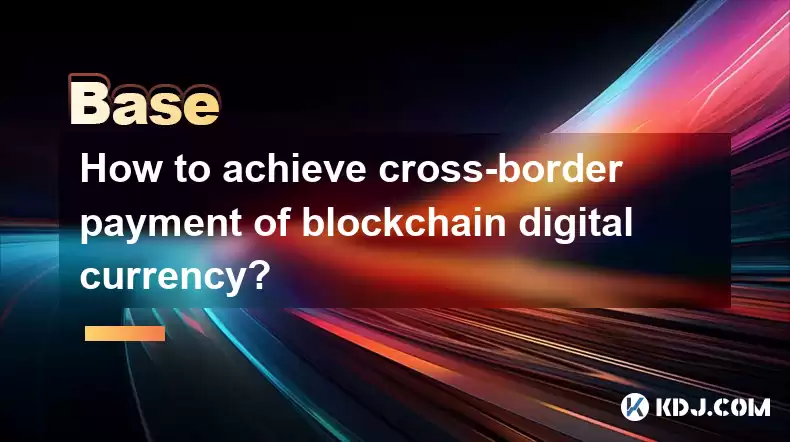
Key Points:
- Understanding the limitations of traditional cross-border payments.
- Exploring blockchain's potential to revolutionize cross-border transactions.
- Identifying key players and technologies facilitating cross-border crypto payments.
- Detailing the step-by-step process of making a cross-border crypto payment.
- Addressing security and regulatory concerns surrounding cross-border crypto transactions.
How to Achieve Cross-Border Payment of Blockchain Digital Currency?
Traditional cross-border payments are often slow, expensive, and opaque. They involve multiple intermediaries, leading to delays and high fees. Blockchain technology offers a potential solution by enabling faster, cheaper, and more transparent transactions. This is achieved through the use of cryptocurrencies and decentralized networks.
Several cryptocurrencies are designed to facilitate cross-border payments. These include Bitcoin (BTC), Ethereum (ETH), Ripple (XRP), and Stellar Lumens (XLM), each with its own strengths and weaknesses regarding transaction speed, fees, and scalability. The choice of cryptocurrency depends on specific needs and priorities. Factors like transaction fees, speed, and network congestion should be considered.
Various platforms and services leverage blockchain technology to simplify cross-border crypto payments. These include exchanges that support international transfers, decentralized finance (DeFi) protocols offering cross-chain bridging capabilities, and specialized payment gateways designed for global transactions. These platforms often provide user-friendly interfaces to manage the process.
To make a cross-border crypto payment, follow these steps:
- Choose a cryptocurrency: Select a cryptocurrency suitable for your needs, considering factors like transaction fees and speed.
- Obtain a cryptocurrency wallet: You need a digital wallet compatible with the chosen cryptocurrency to store and manage your funds. Ensure the wallet supports international transfers.
- Exchange fiat currency for cryptocurrency: Convert your local fiat currency (e.g., USD, EUR) to the chosen cryptocurrency using a reputable exchange.
- Send the cryptocurrency: Use your wallet to send the cryptocurrency to the recipient's wallet address. Double-check the address to avoid irreversible losses.
- Recipient receives and converts (if necessary): The recipient receives the cryptocurrency and can convert it back to their local fiat currency using an exchange.
Security is paramount when dealing with cryptocurrency. Use strong passwords, enable two-factor authentication, and choose reputable exchanges and wallets. Be aware of phishing scams and avoid sharing your private keys with anyone. Understanding the risks associated with cryptocurrency transactions is essential for protecting your funds.
Regulatory landscapes vary across jurisdictions regarding cryptocurrency usage. Some countries have embraced cryptocurrencies, while others have imposed restrictions or outright bans. Staying informed about the legal framework in your country and the recipient's country is crucial. Compliance with relevant regulations is necessary to avoid legal issues.
The volatility of cryptocurrency prices poses a significant risk to cross-border payments. Fluctuations in exchange rates can impact the final amount received by the recipient. Hedging strategies or using stablecoins might mitigate this risk, but it requires additional knowledge and planning.
Privacy concerns also exist, particularly with the use of public blockchains like Bitcoin. While transactions are pseudonymous, sophisticated analysis techniques could potentially link transactions to individuals. Privacy-focused cryptocurrencies or techniques like mixing services could enhance privacy, but they also come with their own risks.
Different blockchain networks operate with varying transaction speeds and fees. Bitcoin, for example, is known for its relatively slower transaction speeds and higher fees compared to some newer networks. Ethereum's gas fees can also be substantial, impacting the cost-effectiveness of transactions. Choosing a suitable network depends on your urgency and budget.
Cross-border crypto payments involve interacting with different blockchain networks. This might necessitate the use of bridges or other intermediary services to facilitate the transfer of funds between different blockchains. Understanding the intricacies of these processes is crucial for a smooth transaction.
The integration of fiat gateways is crucial for seamless cross-border crypto payments. These gateways enable users to convert fiat currency to cryptocurrency and vice-versa, facilitating a more user-friendly experience. The reliability and reputation of the chosen gateway are critical factors to consider.
Frequently Asked Questions:
Q: Are cross-border crypto payments faster than traditional methods? A: Generally, yes, cross-border crypto payments can be significantly faster than traditional bank transfers, which can take several days or even weeks. However, transaction confirmation times vary depending on the cryptocurrency and network congestion.
Q: Are cross-border crypto payments cheaper than traditional methods? A: Often, yes, but it depends on the specific cryptocurrency, network fees, and exchange rates. While transaction fees can be lower than traditional banking fees, the volatility of cryptocurrency prices needs to be factored in.
Q: How secure are cross-border crypto payments? A: Security depends on the user's practices. Using strong security measures, reputable wallets and exchanges, and understanding the risks associated with cryptocurrency are crucial for secure transactions.
Q: Are cross-border crypto payments regulated? A: The regulatory landscape varies greatly by country. Some countries have clear regulations, while others are still developing their frameworks. It's crucial to understand the legal implications in each jurisdiction involved.
Q: What are the risks involved in cross-border crypto payments? A: Risks include cryptocurrency price volatility, security breaches, scams, and regulatory uncertainty. Thorough research and due diligence are essential to mitigate these risks.
Disclaimer:info@kdj.com
The information provided is not trading advice. kdj.com does not assume any responsibility for any investments made based on the information provided in this article. Cryptocurrencies are highly volatile and it is highly recommended that you invest with caution after thorough research!
If you believe that the content used on this website infringes your copyright, please contact us immediately (info@kdj.com) and we will delete it promptly.
- Tron's Sell-Off Spurs Altcoin Shift: What's Next for TRX?
- 2025-08-08 08:30:12
- Sleep Token's US Takeover: Thornhill Rides the 'Even In Arcadia' Wave
- 2025-08-08 08:30:12
- FTT Token's Wild Ride: Creditor Repayments vs. Market Drop - A New Yorker's Take
- 2025-08-08 07:10:12
- Floki Crypto Price Prediction: Riding the Robinhood Rocket or Just a Meme?
- 2025-08-08 07:15:12
- EigenLayer, Restaking, and Ethereum: Navigating the Hype and the Hazards
- 2025-08-08 06:30:12
- Super Bowl 59: Jon Batiste to Jazz Up the National Anthem
- 2025-08-08 06:30:12
Related knowledge
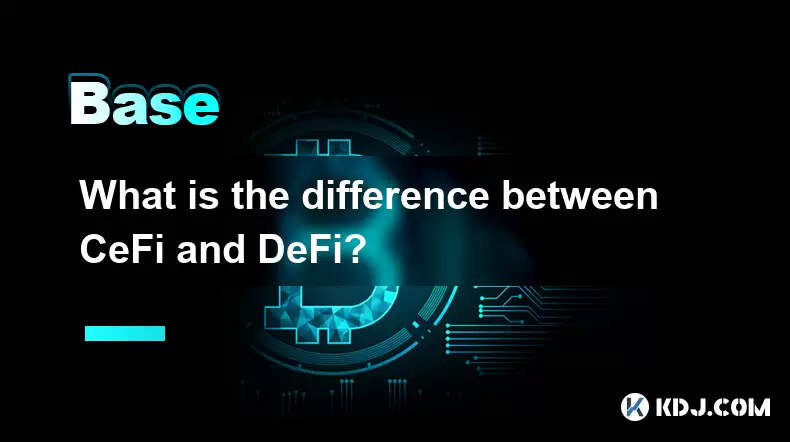
What is the difference between CeFi and DeFi?
Jul 22,2025 at 12:28am
Understanding CeFi and DeFiIn the world of cryptocurrency, CeFi (Centralized Finance) and DeFi (Decentralized Finance) represent two distinct financia...

How to qualify for potential crypto airdrops?
Jul 23,2025 at 06:49am
Understanding What Crypto Airdrops AreCrypto airdrops refer to the distribution of free tokens or coins to a large number of wallet addresses, often u...
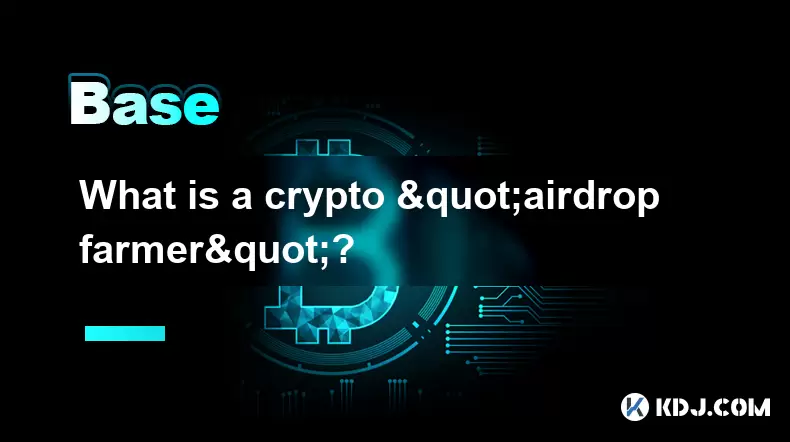
What is a crypto "airdrop farmer"?
Jul 24,2025 at 10:22pm
Understanding the Role of a Crypto 'Airdrop Farmer'A crypto 'airdrop farmer' refers to an individual who actively participates in cryptocurrency airdr...
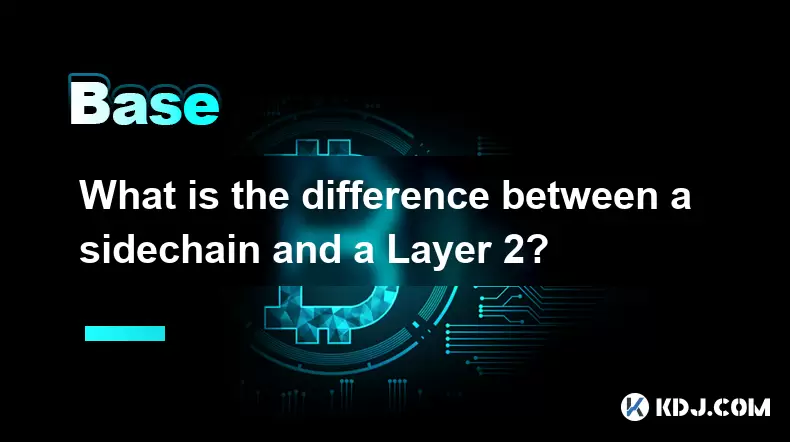
What is the difference between a sidechain and a Layer 2?
Jul 20,2025 at 11:35pm
Understanding the Concept of SidechainsA sidechain is a separate blockchain that runs parallel to the main blockchain, typically the mainnet of a cryp...
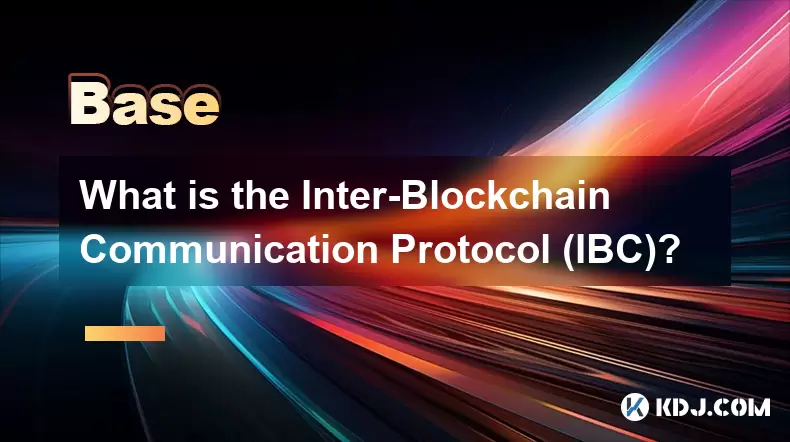
What is the Inter-Blockchain Communication Protocol (IBC)?
Jul 19,2025 at 10:43am
Understanding the Inter-Blockchain Communication Protocol (IBC)The Inter-Blockchain Communication Protocol (IBC) is a cross-chain communication protoc...
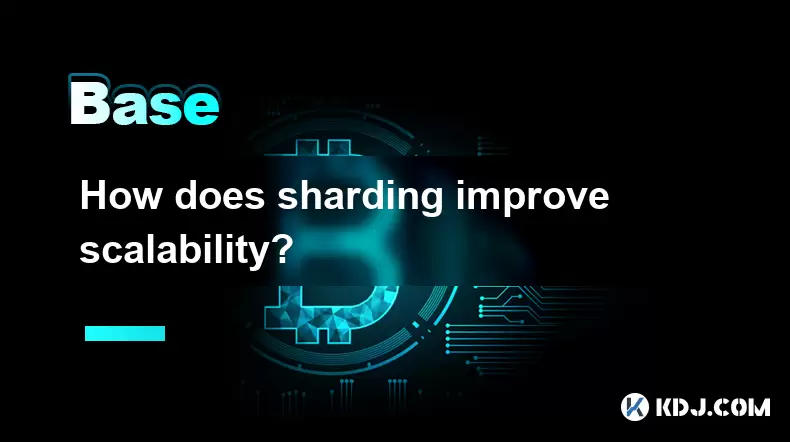
How does sharding improve scalability?
Jul 20,2025 at 01:21am
Understanding Sharding in BlockchainSharding is a database partitioning technique that is increasingly being adopted in blockchain technology to enhan...

What is the difference between CeFi and DeFi?
Jul 22,2025 at 12:28am
Understanding CeFi and DeFiIn the world of cryptocurrency, CeFi (Centralized Finance) and DeFi (Decentralized Finance) represent two distinct financia...

How to qualify for potential crypto airdrops?
Jul 23,2025 at 06:49am
Understanding What Crypto Airdrops AreCrypto airdrops refer to the distribution of free tokens or coins to a large number of wallet addresses, often u...

What is a crypto "airdrop farmer"?
Jul 24,2025 at 10:22pm
Understanding the Role of a Crypto 'Airdrop Farmer'A crypto 'airdrop farmer' refers to an individual who actively participates in cryptocurrency airdr...

What is the difference between a sidechain and a Layer 2?
Jul 20,2025 at 11:35pm
Understanding the Concept of SidechainsA sidechain is a separate blockchain that runs parallel to the main blockchain, typically the mainnet of a cryp...

What is the Inter-Blockchain Communication Protocol (IBC)?
Jul 19,2025 at 10:43am
Understanding the Inter-Blockchain Communication Protocol (IBC)The Inter-Blockchain Communication Protocol (IBC) is a cross-chain communication protoc...

How does sharding improve scalability?
Jul 20,2025 at 01:21am
Understanding Sharding in BlockchainSharding is a database partitioning technique that is increasingly being adopted in blockchain technology to enhan...
See all articles

























































































